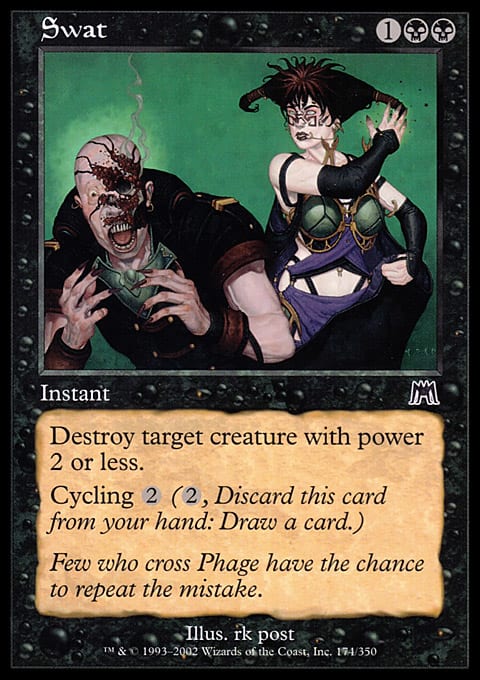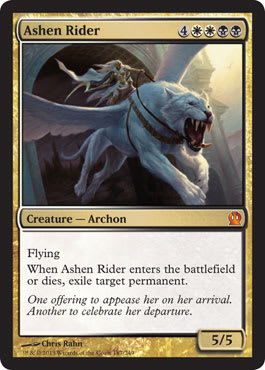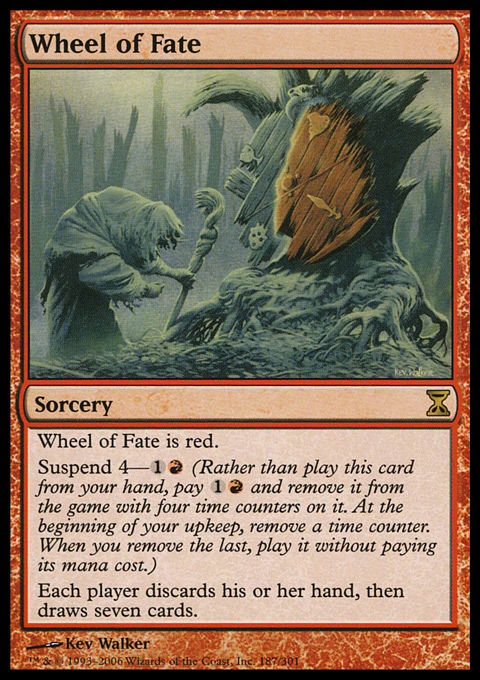So, let me start this week by saying that by no means am I any sort of expert on Magic Online finance. This, however, does not stop people from asking how I feel about the market or what they should be looking to pick up. Though I cannot answer most questions, I do have some knowledge on the subject, and since it seems to be something people are interested in, I will look into having a guest for an interview in the future. For now, let us take a trip through my progression in Magic and what MODO, or Magic Online with Digital Objects, has taught me.
I created my MODO account back in middle school, nearly thirteen years ago, and have since used it for testing and drafting mostly—until recently, that is. In the beginning, I used my allowance to allow myself to draft. I was not the greatest and therefore did not win much, but I did manage to draft at least once a week for a few years, amassing a respectable collection. At the time, I knew nothing of selling my cards to turn a profit, so I merely let them sit, collecting virtual dust as I continued to pour money into the game. After a few years, Magic took a bit of a secondary role in my life as my local player base died off, my home store closed down, and many of my childhood friends who played had moved on; MODO also took a back seat as I left my account for a few years.
When I found myself playing the game again, I was nearly out of high school, and though I had attended every prerelease through this time, that was about the extent of my Magic-playing for the past couple years. Suddenly, I had a local store again and found that this crowd was much more competitive, meaning I had to quickly adjust back to that type of play. I reinstalled MODO, now with a job and disposable income; I was ready to start playing again. I found my account still intact and with a heap of cards still on it. I had, in all honesty, forgotten what was there and was pleasantly surprised to see I had a solid start of a collection. By that point, I was waist-deep in Magic finance and realized that cards were worth more than just the price of a pack. After scouring my collection, I was able to sell a number of cards on my account and, in total, wound up with over eight hundred tickets, MODO’s equivalent of a dollar. With this, I started chaining Drafts and managed to once again cumulate a number of cards.
I played with consistency for a few years and managed to qualify for and attend the Pro Tour, taking advantage of MODO as my primary playtest group. During the time of Shadowmoor, I was back in the thick of things and was drafting five times a day quite regularly during the summer and winning more often than not, allowing myself to “go infinite.” After some troubling times, I had the wind knocked out of my sails, and I once again let myself drift from Magic.
Fast forward to a few years ago: I was now using Magic as my primary source of income but still wanted an outlet to play. Attending Grands Prix and Pro Tour Qualifiers was now work rather than play for me, but I still needed my fix. MODO once again reared its ugly head, and much to my surprise, I picked a perfect time to get back in.
As with the previous time, dumb luck struck again, this time in terms of format rather than quantity. I managed to start back up right around the time Extended rotated, and suddenly, filter lands were all the rage. If you read back, you will notice I was drafting multiple times a day at this point and managed to amass multiple play sets of most of them. I sold what I could, as the prices were outrageous, and accumulated a few thousand tickets. At this point, I knew I would need nowhere near that many, so I sold some, giving me a little extra capital in the business, which is always welcome, as any entrepreneur can tell you. Since then, I had been drafting and keeping up with the Standard market, selling when cards spiked and taking more and more money out until I had but a shell of what my MODO account once was.
So, you may ask, how is all of this relevant to what Magic Online can do for you in terms of making money? The truth is it took me years of playing and studying the market to even have a grasp of what was going on, and believe me, that market is very different than the cardboard one most of us know. I want to give a few tips on what I have learned over the years and then leave this article fairly open-ended for a Part 2 in the near future; this is where you all come in. If you have any experience in the online market, please feel free to chime in, and even if you don’t, you probably have questions to ask those who do. In the comments, I am hoping to start a conversation into what the MODO market is and how it reflects the real world market; what trends can help you pick up cards, and what triggers do you watch for to know when to sell? These are just a few questions that hardly touch the tip of the iceberg that is MODO finance. In the second part of this series, I will be taking submissions in the comment section for both questions and pieces of advice, combining them to create kind of “How To?” guide into Magic Online finance. Much like this series, I hope this will create a way for the average player to sustain his or her collection while not pouring money into the game.
One of the first things I noticed about Magic Online is how much faster the market can shift—a card that never sees a spike in real life may have gained and then lost a few dollars value in just the course of a day or two. Events, both in real life and online, can spike a price so much quicker online just due to how quickly the market can operate—no shipping time or bartering means the market moves at a much more rapid pace. This also means you need to be diligent about keeping up with things if you plan to take it on as more than just a hobby. Offline, you can find cards that have spiked recently for weeks after at the old price if you scour hard enough; on Magic Online, that time period is reduced to a matter of hours at best.
Another important factor online is the price of cards in general. The fact that a rare is seeing significant play does not mean it will be worth much online. This is mostly due to how many more people play Limited and how easily accessible the cards are, but when cards such as Snapcaster Mage hover below $10 for most of their Standard lives, you begin to realize just how different the markets are. This rule is different for mythics, as they still can be difficult to open, and, in turn, they hold most of the set’s value online, meaning the prices will usually match or exceed their cardboard equivalents. This rule pertains mostly to playable mythics, as the casual formats do not see much love online, making the digital version of cards that may be good in Commander but little else still nearly worthless.
On the topic of mythics, here’s a quick hint to those looking to just start out: It seems mythics have consistently gained a bit of value each time redemption comes online for a new set. Until that point, bots sell very few of them, and as people draft more and more, the price and availability reflect that. Once redemption hits, people who may need those last few mythics to finish a set will typically just buy them, spiking the price for a short time and giving you the opportunity to take advantage and sell your copies. I have not had enough opportunity to examine the market since the mark-up of set redemption, but I expect that will not dramatically change this facet of the market.
On a closing note, the last piece of advice I have is not one I would normally state about cards, but in this market, feel free to just buy in. In the cardboard version, you have a long period between buying a card and selling it, and at times, that creates work for a number of people along the way, creating a spread between the buy price and sell price of a card. This legwork is relatively minimal online, meaning that percentage is much lower. With this in mind, it is much safer to buy into a card you feel may go up, and even if things do not go as planned, you still have a relatively small loss if you get out early enough and are diligently watching the market. Trading on Magic Online is relatively nonexistent, meaning buying or selling cards is your primary outlet. This creates a stable market wherein prices do change but not usually without cause. Buyouts and spikes are relatively minimal, and you can instead rely on playability to drive a price.
As I mentioned, I really hope some people who know far more than I do about this market are willing to share what they may have learned. If you feel the need to keep a low key, please feel free to contact me directly, but I encourage anyone, no matter how big or small, to contribute your experiences. If you are looking for more Magic Online advice from someone looking to get his toes wet in the market, look for Jason Alt’s upcoming article. He is going to be covering his first steps as a Magic Online financier, perils and victories alike. I am sure he will have a lot to teach those looking to make their ways in for the first time. As always, thank you for reading, and check back in next week, as we venture back into the world of cardboard and away from the digital.
Ryan Bushard



























